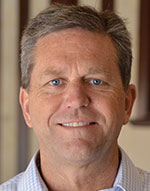Faith, Hope and Charity / David Siler
Vitriol in religious freedom debate contaminates
dignity, passion
of discussion
 I really hesitate to write this column. Like most of you, there is a big part of me that would just like to leave the whole Indiana Religious Freedom and Restoration Act (RFRA) business behind, and move on to easier, much less controversial topics.
I really hesitate to write this column. Like most of you, there is a big part of me that would just like to leave the whole Indiana Religious Freedom and Restoration Act (RFRA) business behind, and move on to easier, much less controversial topics.
However, in the same way that I live both my personal and professional life, I work hard to see every trial as an opportunity to learn, grow and become stronger. I attempt to look for the lessons that can be learned, so that mistakes can be avoided, new habits can be formed, and healing can take place.
As I observed the most volatile public reaction on a social topic in my adult lifetime—regardless of where people stood on the issue—I immediately began to put on my sociology hat and observe our reactions with great fascination.
It occurred to me that while we so often blame our politicians at every level of government for their inability to communicate effectively, to reach compromise, to be respectful to one another and to get things done, I observed that they are really just a reflection of us.
Regarding people’s actions and reactions on both sides of the issue of Indiana’s RFRA, I could not help but become dismayed at the way we treated one another.
I hope that you, like me, became repulsed by the name-calling, judging, self-righteousness and downright wicked way that many people communicated with one another with regard to this contentious issue. It is no wonder that our politicians cannot seem to find common ground—most of our society is no longer even willing to look for common ground.
I suppose some would say that the “fix” to the RFRA legislation was that common ground, but I have noticed that no one really seems to feel satisfied. And if we look at the wake of destruction left in the path of the “debate” about the issue, I would suggest that any common ground has been contaminated.
I remember many years ago in debate class in college how we were taught to have respectful and intelligent debate without resorting to name-calling, nastiness or blaming. We were taught to do our research, analyze the facts, and present our argument with conviction and passion while listening to the other side of the argument. It was OK for us to agree to disagree at the end of the debate, but we didn’t have to destroy one another in the process and compromise our own dignity or the dignity of our opponent. I think our entire society needs to learn those lessons.
I suggest that this lesson we all witnessed in our democratic process is merely a microcosm of where we are as a society. No longer do we hold up as most important one another’s dignity, charity and our respect for differing opinions. We have become willing to compromise everything to be right, to get our point across no matter the consequences. Is it any wonder why we see so many arguments settled among our young people today with violence?
We used to say as kids, “sticks and stones may break my bones, but words will never hurt me.” I see far too many words doing far too much hurt.
(David Siler is the executive director of the archdiocesan Secretariat for Catholic Charities. E-mail him at dsiler@archindy.org.) †
 I really hesitate to write this column. Like most of you, there is a big part of me that would just like to leave the whole Indiana Religious Freedom and Restoration Act (RFRA) business behind, and move on to easier, much less controversial topics.
I really hesitate to write this column. Like most of you, there is a big part of me that would just like to leave the whole Indiana Religious Freedom and Restoration Act (RFRA) business behind, and move on to easier, much less controversial topics.